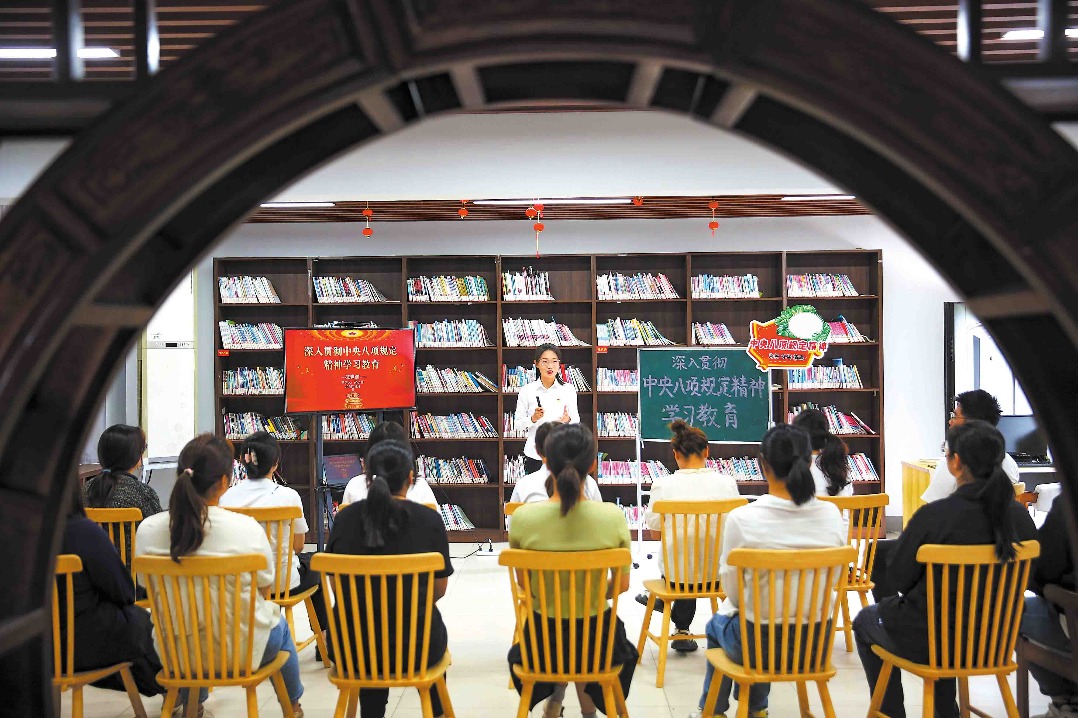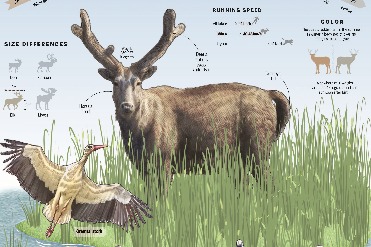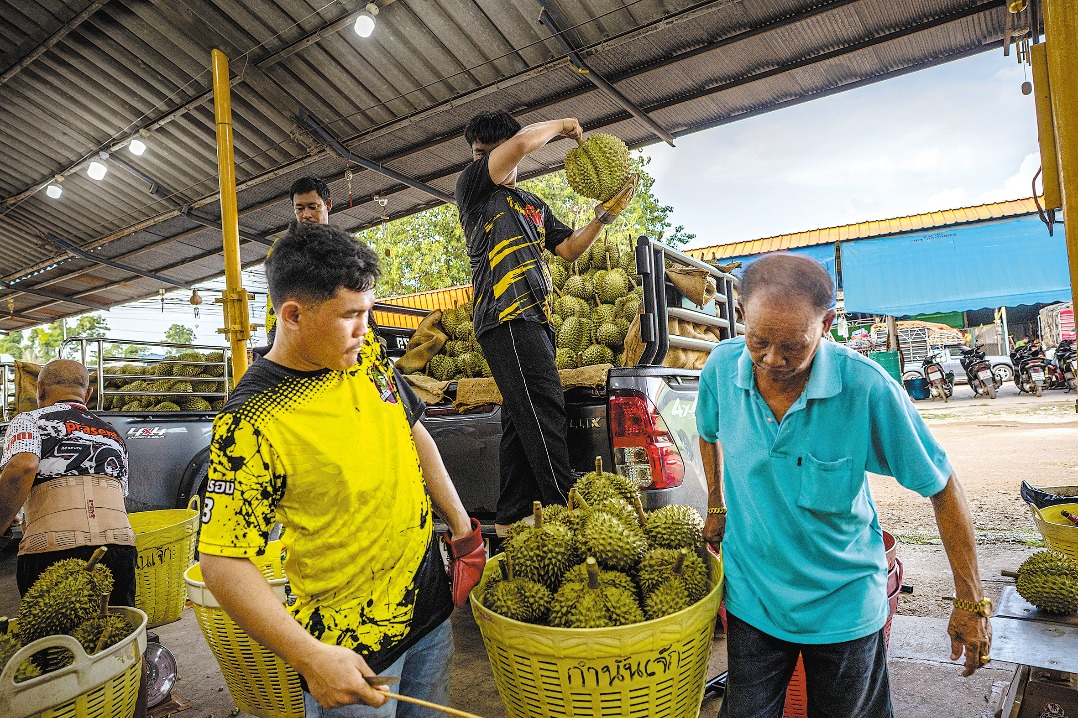In Swahili, they call it ...

|
Shen Yuning has worked for months on a Swahili-Chinese dictionary. Provided to China Daily |
A student is working on a dictionary for better communication between Africans and Chinese
Communication between Africa and China is about to become a whole lot easier thanks to the efforts of Shen Yuning. The 26-year-old is set to start discussions with a number of African publishers for his brand new Swahili-Chinese dictionary, which he compiled all by himself. Swahili is an African tribal language spoken by a number of ethnic groups that live along several large stretches of the Mozambique Channel coastline from Northern Kenya to Northern Mozambique. Although only 5 million people formally list Swahili as their mother tongue, it is used as a lingua franca in East Africa, where it is used by more than 80 million people.
Swahili has been adopted as the official language of five African nations: Tanzania, Kenya, Uganda, the Comoros Islands and the Democratic Republic of the Congo.
Born in Nanjing, the capital of East China's Jiangsu province, Shen is a final year undergraduate majoring in African languages at Germany's University of Hamburg. He says a growing number of East Africans are keen to learn more about China as the country is considered a successful example for economic development in the modern world.
Shen's dictionary includes more than 15,000 Swahili entries and 220,000 Chinese words. He will go to Dar es Salaam, the largest city in Tanzania, next February for proofreading.
"It definitely takes ages and loads of group work to compile a dictionary, wherever you are in the world," Shen says. "When I announced that I was planning to compile a Swahili-Chinese dictionary, most of my friends tried to persuade me to stop such thinking, because they thought this project was too big and difficult to complete."
Seven months ago, Shen set his heart on completing the dictionary. Since then, he has worked at least 15 hours a day in Tanzania and Kenya. At the beginning, he collected daily-use vocabulary from his conversations with local friends and classmates during his term at Kenya's Kenyatta University in Nairobi. Then he consumed a wide range of media including literature, technology, TV and radio to collect more words.
Political interaction, construction projects, economic cooperation and cultural exchanges between Africa and China have been increasing in recent years, but many Chinese in Africa can only speak Chinese, while locals only speak Swahili or limited English. Both sides sometimes have to use two calculators to do routine shopping or price negotiation. This unique phenomenon, in which a Chinese and an African national brandish figures at each other until the number on both calculators is the same, has somehow become quite popular.
"Of the several African languages I've learned, Swahili is widely used in the eastern part of this continent," Shen says. He also hopes the dictionary will be helpful for Chinese workers in East Africa.
"If you look at the Internet, there are free online translation tools, but they are quite confusing when it comes to the translation of African languages," Shen says.
"Moreover, most Chinese workers in Africa don't have easy access to the Internet, while a dictionary is portable and much more convenient to use."
A Swahili-Chinese dictionary had previously been compiled in the 1970s, but this hasn't dissuaded Shen from continuing.
"Vocabulary changes over time. Many words and meanings have gone through immense cultural changes over the past decades. Consider China's tremendous changes during the same period," Shen says.
Ao Manyun, who teaches Swahili at the Communications University of China in Beijing, visited Shen in Tanzania in February after hearing about his project.
"I think what he has done now is very creative and encouraging. He is so young and has such passion for Africa. He lives in a very simple way there, and except for eating and sleeping, he spends all his time working on the dictionary. It's really tough," she says. "Shen's dictionary will have its own advantage for its rich and fresh vocabulary since he lives with the locals."
According to Ao, four universities on the Chinese mainland offer Swahili as a major, each enrolling about 10 to 20 students every two to six years.
Hassan Ali Mohammed, a 23-year-old tour guide in Zanzibar, Tanzania, has worked for Shen for two months. His main job is to collect words from books, discuss them with Shen and analyze their meanings.
"He speaks very good Swahili," Mohammed says. "It's very interesting to work with him and to share ideas with him."
Benedict Daniel Nassary, a 28-year-old shopkeeper in Zanzibar, discovered working with Shen is sometimes quite difficult because "it uses a lot of brain". "There are many words, they have more than one meaning, sometimes you have to think too much," he says.
Despite the heavy workload, Shen feels happy whenever he thinks of how the dictionary might enable more Chinese to learn and communicate with East Africans.
"For me, nothing is more wonderful than communicating with people from very different cultural backgrounds, which I believe many would agree with," he says.
However, Shen hasn't found any Chinese educational authority willing to examine his dictionary or an interested publisher. Also, as an independent researcher and compiler, Shen cannot represent a university to establish a collaborative relationship with any African university or language research center.
"Chinese publishers may have the wrong impression about Swahili. They think this language is too hard to learn and so it will be extremely difficult to compile a dictionary. They think the market for my dictionary is limited in comparison with English-Chinese or French-Chinese dictionaries, and they cannot afford the time and money to work in the domestic and East African markets," he says.
Fortunately, a number of publishers and several academic institutes in Kenya and Tanzania are showing an interest in Shen's work. Hoping to gain help and financial support for the first edition, Shen will fly to Tanzania to meet them next year.
Naturally, funding a long-term project like this has always been an issue for Shen. To keep everything running smoothly, many of his former schoolmates have offered help. Shen's parents also became his sponsors this year, and he has spent all his savings for the work he loves profoundly.
So far, Shen has spent more than 110,000 yuan ($17,500) on the dictionary, employing local assistants, visa fees, airfare and researching materials.
"I haven't decided how much the dictionary is going to cost, this is not very important to me. I just hope on the day it gets published, whoever reads the preface will think: It's a miracle," Shen says.
Contact the writers at zhongnan@chinadaily.com.cn and huangyuli@chinadaily.com.cn
(China Daily 12/21/2012 page22)
Today's Top News
- China's system contributes beyond nation
- Xi's article on unity, hard work to be published
- Xi urges full, rigorous CPC self-governance
- Grassroots Party units continue to play key role
- Global investors double down on Chinese assets
- FM's visit to Europe seen as boosting ties































